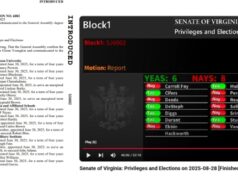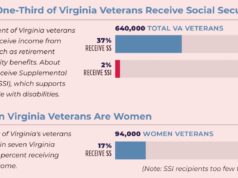With the COVID-19 pandemic raging, with people hunkered down and many out of work, it’s a tough time in America. Making things worse, of course, is that bills – food, health insurance, utilities, and of course rent – aren’t stopping, which means that many individuals and business owners are going to be in increasingly difficult circumstances the longer this crisis goes on. Of course, the *last* thing we want to see is people being evicted from their homes because their rent or mortgage is overdue. Yet how many states have adequate protections in place to prevent people from becoming homeless in the midst of a deadly pandemic?
According to a new scorecard by Eviction Lab at Princeton University – “a team of researchers, students, and website architects who believe that a stable, affordable home is central to human flourishing and economic mobility” – it’s not looking great in most states, including Virginia. We’ll get to that in a minute, but first, a bit of information on the scorecard (bolding added by me for emphasis):
- “As a stopgap measure, state and local governments, as well as the U.S. Department of Housing and Urban Development (HUD), have issued partial emergency eviction and foreclosure moratoriums to prevent families and individuals from losing their homes during the COVID-19 outbreak. These emergency measures vary greatly in form and degree of protection. While some of the moratoriums block evictions today, the vast majority still allow for widespread eviction as soon as state and federal emergency declarations expire. To prevent the deleterious health consequences of eviction and an escalating economic crisis, states are beginning to pursue strategies to ensure safe, decent, and stable housing during and after the pandemic.”
- “To better understand the steps states have taken to prevent homelessness during and after the pandemic, the Eviction Lab and Columbia Law School’s Professor Emily Benfer have developed a policy scorecard for each state, distilling the contents of thousands of newly-released emergency orders, declarations, and legislation into a clear set of critical measures included in, and left out of, state-level pandemic responses related to eviction and housing. Our scoring methodology can be found here.”
With that, the scores look like this:
- Only one state – Massachusetts – gets four stars (out of five) or higher, while four states – Delaware, Connecticut, Nevada, Minnesota – receive 3.5 stars or higher.
- Five states – Wyoming, South Dakota, Missouri, Colorado, Arkansas – actually receive ZERO stars, with a slew of other states (mostly “red” politically, by the way) – Oklahoma, Georgia, North Dakota, Louisiana, Idaho, Tennessee, Vermont, Ohio, Nebraska, West Virginia, North Carolina, Indiana, New Mexico, Mississippi, Illinois, Virginia, Utah and Alabama – with less than 1 star.
- That’s right, Virginia is in the less-than-one-star category, in between Mississippi, Illinois, Utah and Alabama. Why? See below for the gory details, but in short, Virginia receives only five green check marks out of 21 categories.
- Note that Virginia receives ZERO green check marks for three of the categories – Initiation of Eviction (“whether a state bars landlords from serving tenants with notice to quit and filing an eviction action for nonpayment related to COVID-19 and other reasons”); Tenancy Preservation Measures (“whether a state bars late fees, extends tenants’ legal representation in housing court, provides for safe and decent housing (through rental assistance or some other measure to provide relief from rental debt), and bars rent raises during and after the pandemic”); and Enforcement of Eviction Order (“whether a state bars law enforcement from executing an eviction order, including cases of COVID-19-related hardship, nonpayment, or all non-emergency cases”).
- Virginia receives just two green check marks (out of six possible) in “Short-Term Supports” (“whether a state extends eviction moratoriums and emergency protections past the state of emergency, provides a grace period to pay rent, bars landlords from reporting tenants to credit bureaus, and halts foreclosures. In addition, the scorecard tracks whether utilities are barred from disconnecting service or are required to reconnect service without a fee, though these measures are not included in states’ final scores because the state is not always the actor”).
- Finally, Virginia does pretty well – three green check marks out of four maximum – in “Court Process” (“whether a state suspends eviction hearings, stays writs, orders, or judgments of possession, tolls or extends court deadlines, and seals eviction case records”).
So, clearly, Virginia is lagging behind many other states, as well as where we need to be, when it comes to housing policy during the COVID-19 crisis. It seems obvious to me that Virginia needs to improve in this area – and fast. For instance, how about doing whatever we can to protect working people, poor people, etc. from the harsh economic consequences of this pandemic, including after stay-at-home orders are lifted? And yes, of course landlords – particularly individuals who might rent out a room in their house or whatever to help them get by financially – understandably have bills to pay as well, and can’t just go months on end without receiving rent. Which means they’re going to need help too. As a Facebook friend of mine put it, “We can walk and chew gum at the same time.” And we really are going to have to…or things could get really, really ugly in coming months.
P.S. Do we need to hold a special session of the Virginia General Assembly in order to deal with this issue? Seems like it, unless folks think we can wait until next January, but…yeah, no way we can wait that long.
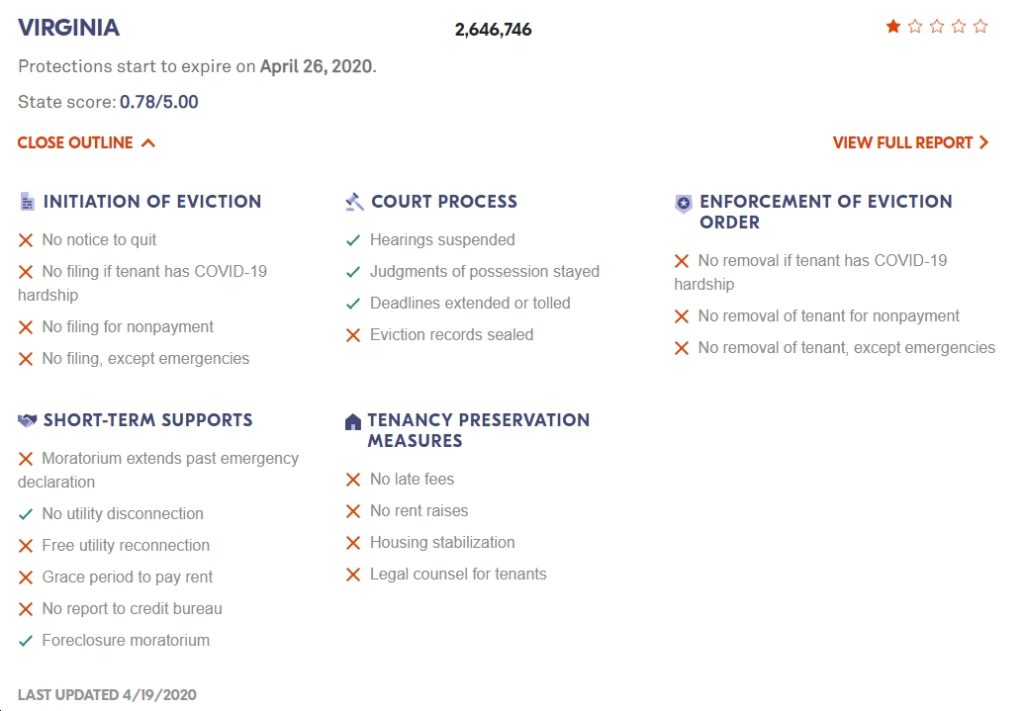
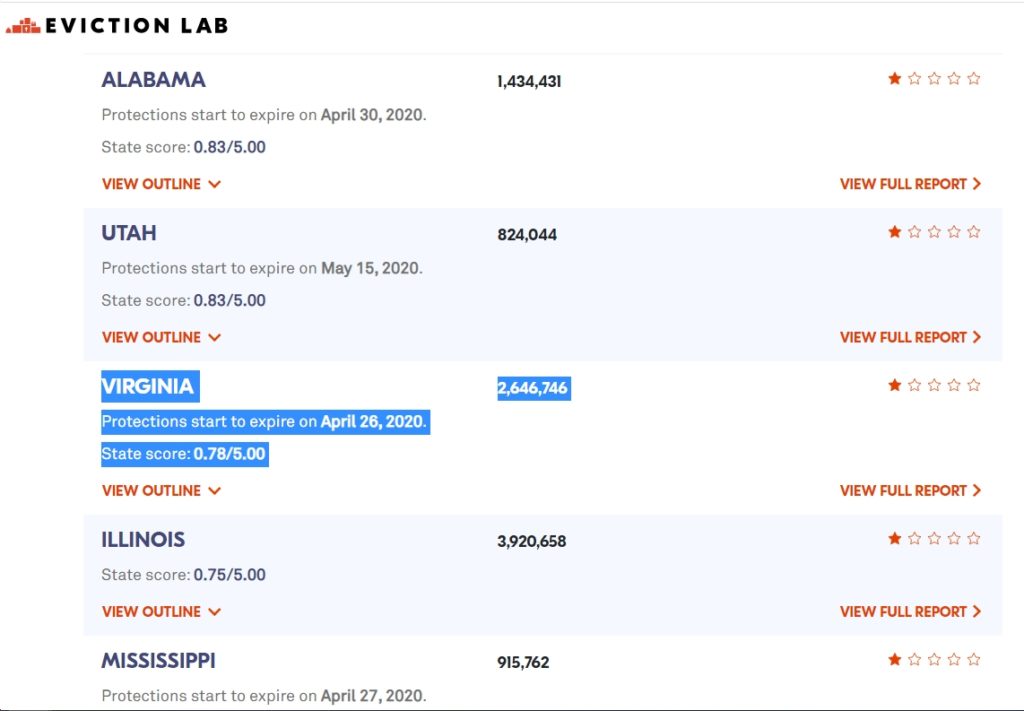
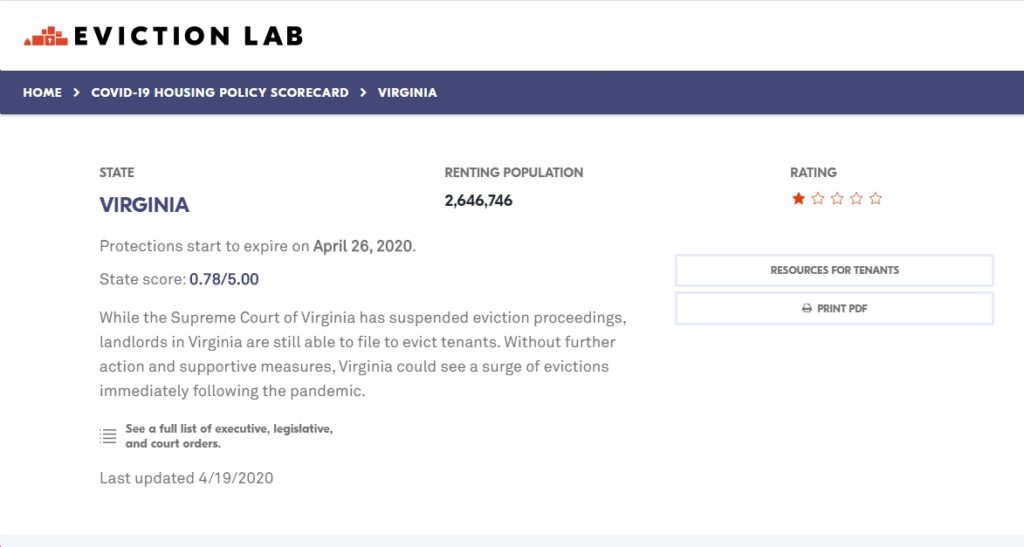
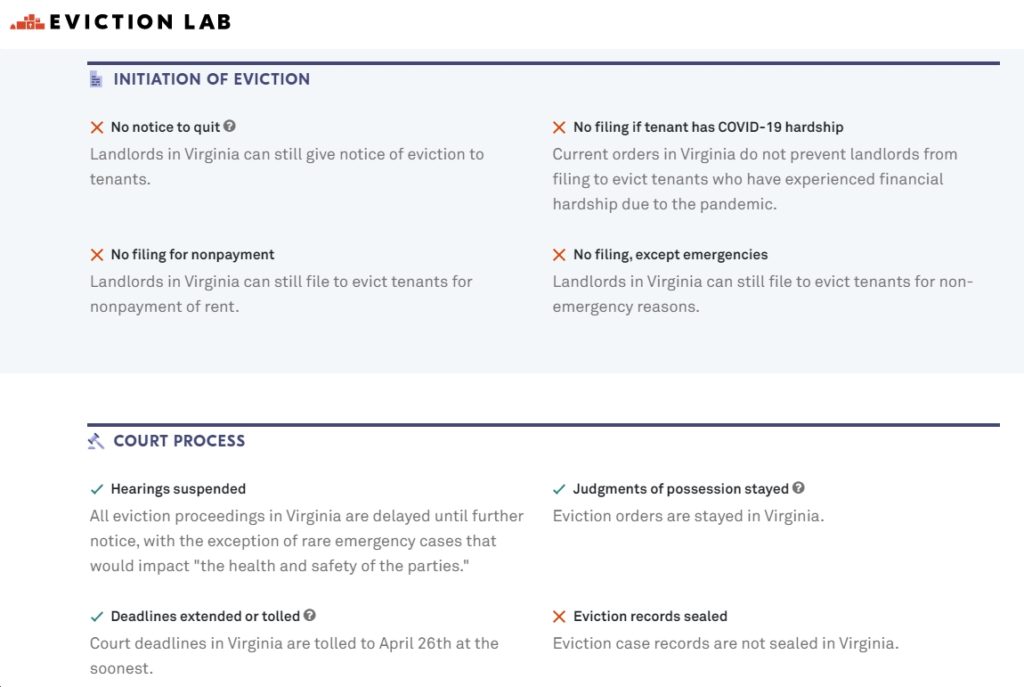
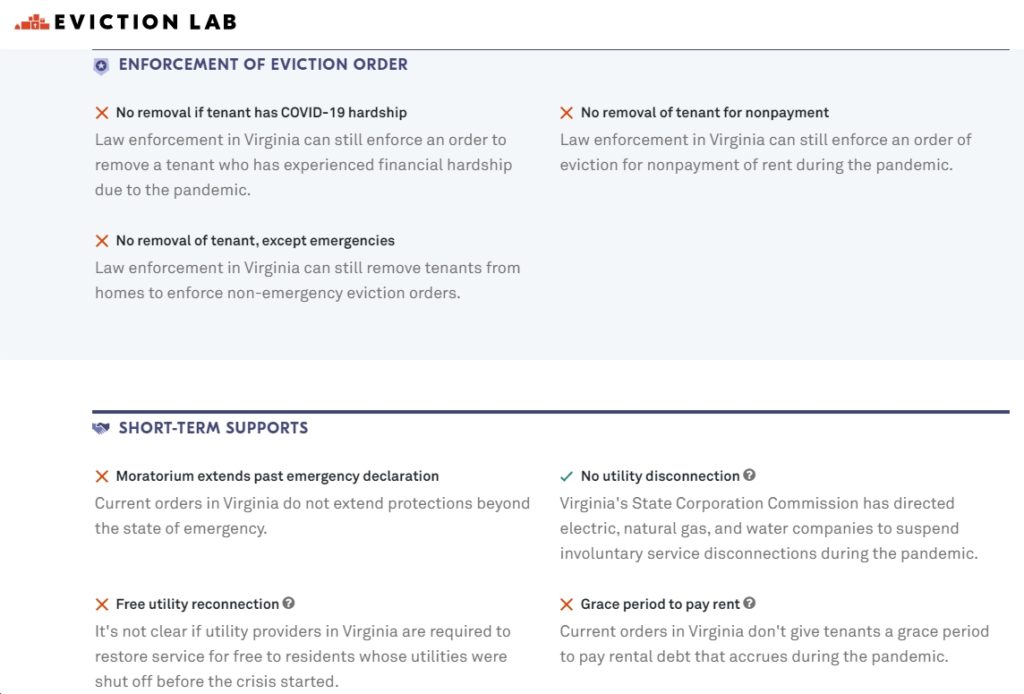
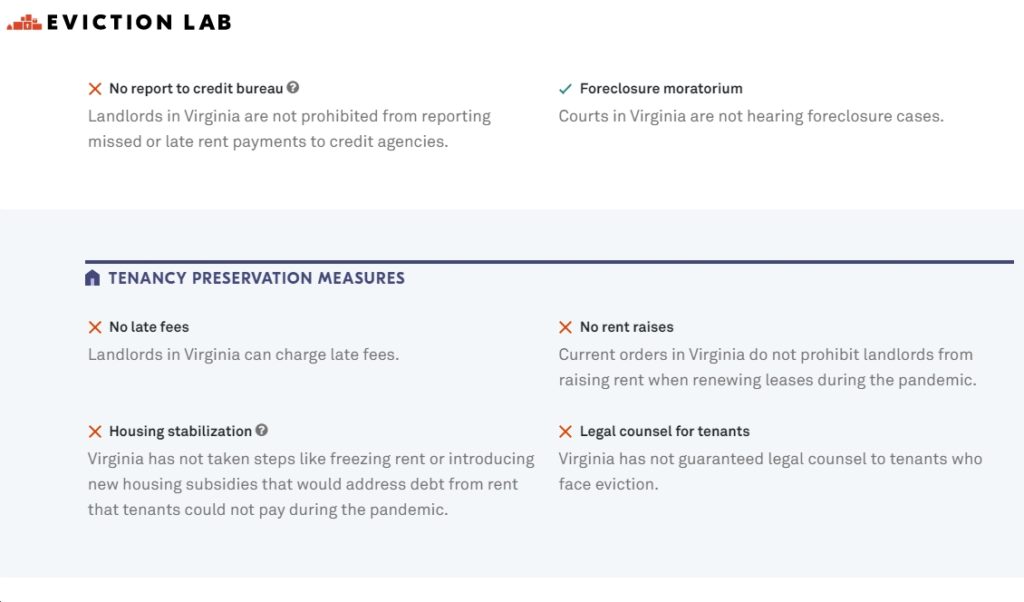



![Heading Into the 2025 VA Elections, Is It True That “Virginia Democrats have the issues and the money, Virginia Republicans have [a media (mis)information] ecosystem?”](https://bluevirginia.us/wp-content/uploads/2025/08/newsdeserts-238x178.jpg)
